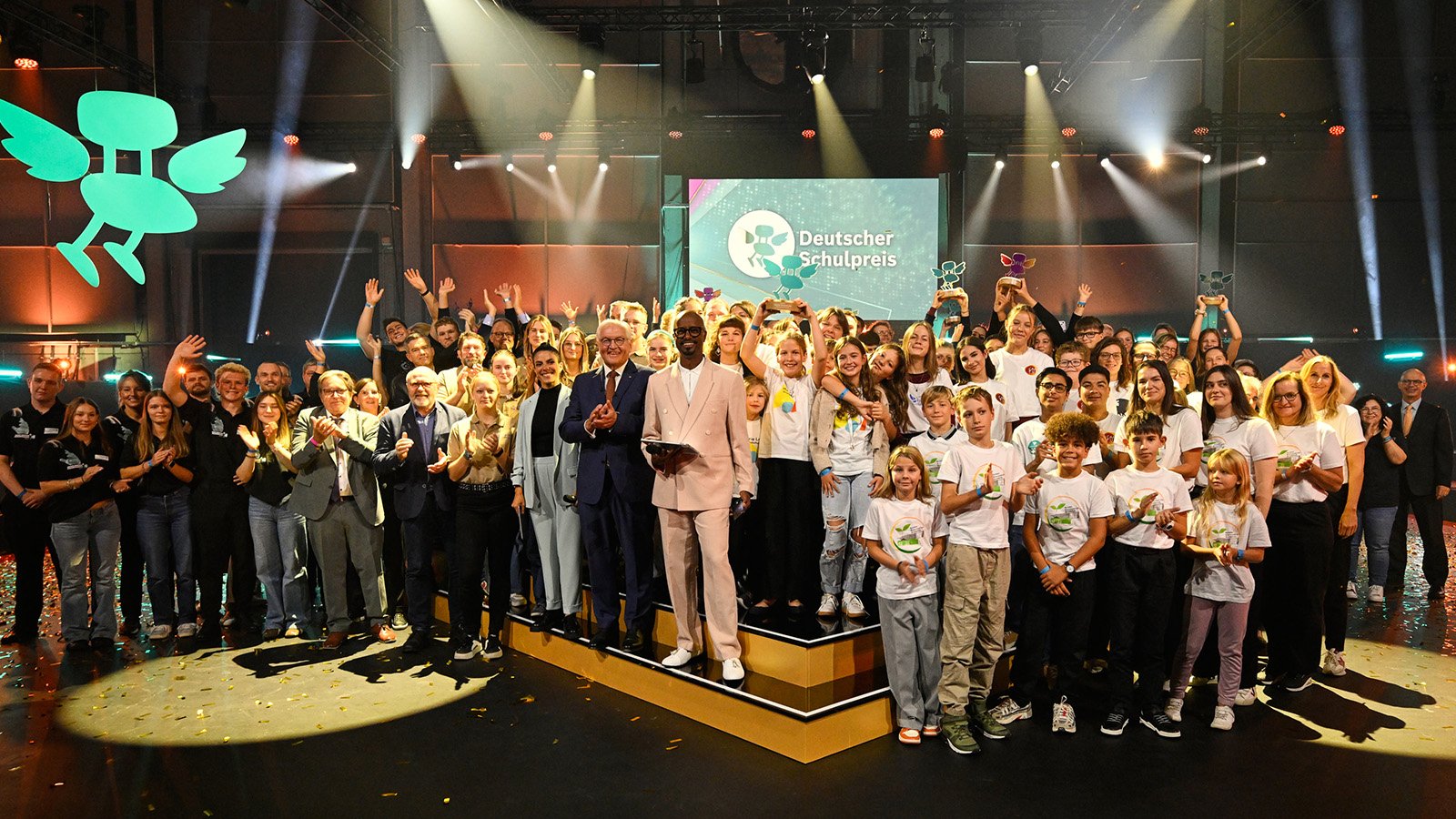Teaching That Makes a Difference – These Schools Lead the Way
On 30 September 2025, Germany’s best schools were celebrated. Federal President Frank-Walter Steinmeier presented the German School Award to schools that prove: quality education happens where children are taken seriously and given space to grow as individuals.
The Maria-Leo Primary School in Berlin received the main award, worth 100,000 euros. It combines innovative spatial design with thoughtful pedagogy to create a coherent and inspiring learning environment.
"Each and every one of us would wish for every child in Germany to attend a school like this," said jury member Nicole Schäfer.
What makes this school stand out: 358 pupils learn in so-called “compartments” – learning houses that are organised across year groups. Instead of rigid 45-minute lessons, students work in extended learning blocks at their own pace. “There’s a palpable spirit of innovation and a shared commitment to high-quality teaching throughout the entire team,” Schäfer explained.
Five other schools received 30,000 euros each: the German International School Tbilisi, the Evangelical Comprehensive School Gelsenkirchen-Bismarck, the Jenaplan School Weimar, the Questenberg Primary School in Meissen, and the School An der Burgweide in Hamburg.
Courage to Change: How Award-Winning Schools Are Rethinking Education
What unites the award-winning schools is their belief in their students’ potential. At Questenberg Primary School in Meissen, subject boundaries are dissolved – maths, German and science blend into holistic learning experiences. “The school is breaking new ground both academically and pedagogically – always with the students in focus and the staff working as one team,” praised jury member Alexander Gröschner.
The Jenaplan School Weimar demonstrates how a community school can thrive: three year groups learn together, older students support younger ones, and everyone takes on responsibility. “There’s a remarkable sense of identification with the school – among parents, external partners like the German National Theatre, and of course the students themselves,” said jury member Michaele Geweke.
"Over the past two decades, the German School Award has demonstrated the courage and creativity of our schools, as well as the remarkable dedication with which they bring their ideas to life. I am deeply grateful to all those who have submitted their concepts and initiatives for consideration. And I warmly encourage you to do so again in the future."
The German International School Tbilisi shows that excellence is possible even under challenging conditions. Children from non-German-speaking families achieve the German International Abitur – with outstanding results. “The staff truly live the principle of ‘everything for the students’,” said jury member Raika Wiethe.
- Established: 2006
- Organisers: Robert Bosch Stiftung and Heidehof Stiftung
- Partners: ARD and ZEIT Publishing Group
- Prize Money: €100,000 for the main award, €30,000 for each additional prize
- Evaluation Criteria: Six areas including teaching quality, school climate, and diversity management
- Applicants in 2025: 112 schools, 63 of them for the special Democracy Education Award
- Next Application Deadline: 31 January 2026
A First: Award for Democracy Education
For the first time, the foundations awarded a special prize for democracy education – and did so three times. The Ernst Reuter Community School in Karlsruhe, the School An der Burgweide in Hamburg, and the Evangelical School Centre Muldental in Großbardau each received 30,000 euros.
“Democracy isn’t something you learn from books alone – it must be experienced and practised. The ideas and concepts submitted by the schools impressed us so much that we decided to award not just one, but three prizes.”
The winning schools offer powerful examples of how democracy education can succeed: In Karlsruhe, students discuss school development in the “Red Salon”; in Hamburg, primary school children take responsibility for real-life projects; and in Großbardau, report cards are created through dialogue between teacher and child.
An Award That Moves Schools Forward
Since 2006, more than 2,700 schools have applied for the German School Award. It has long become more than just a competition – it’s a dynamic learning network where schools inspire and learn from one another.
Through the German School Portal, professional development opportunities, and a school visit programme, the best ideas are shared and scaled.
“These schools show that great teaching can happen anywhere,” said Michael Brenner from the Heidehof Stiftung. “They face the same challenges as all others – and yet they manage to create learning environments that empower children and young people to find their own path.”

